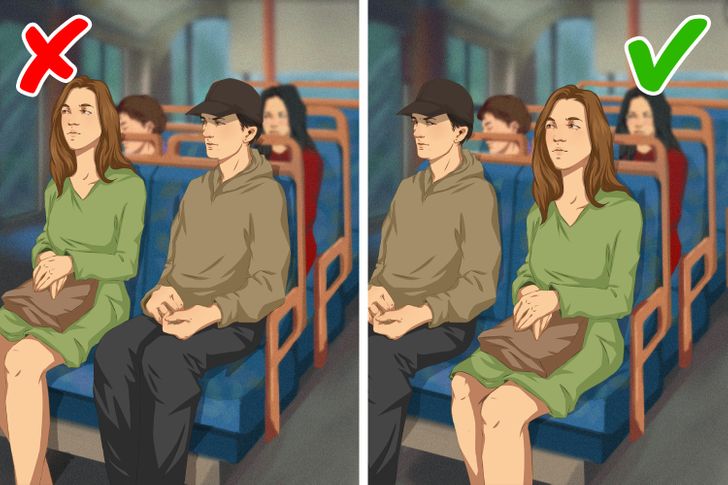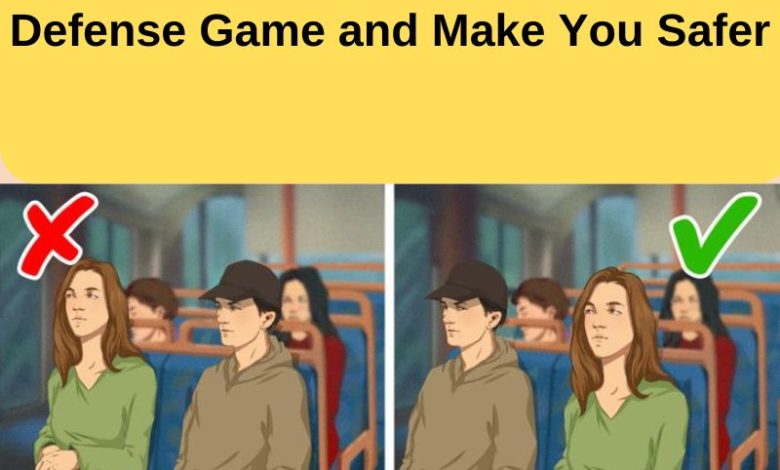
But before it comes to that, there are some things you can do to make the environment around you safer, or at least minimize the risk of ending up in a dangerous situation. Such seemingly unimportant things, like how and where you park your car or what seat you choose on public transport, can actually work to your advantage.
We found some tips that might help make your everyday life a bit safer and also make you more aware of possible dangers. We hope you’ll find these tips useful.
1. Walk away from walls.
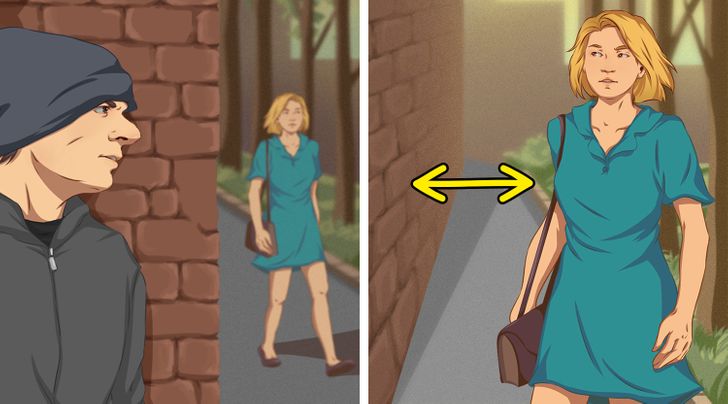
When you’re approaching a blind corner, create some space between yourself and the wall. This will give you more time to make smart choices if there’s someone waiting to attack you. You might also be able to notice them before they do anything and give you an opportunity to run away. Always be aware and look around to check for possible danger.
2. Park your car in reverse.
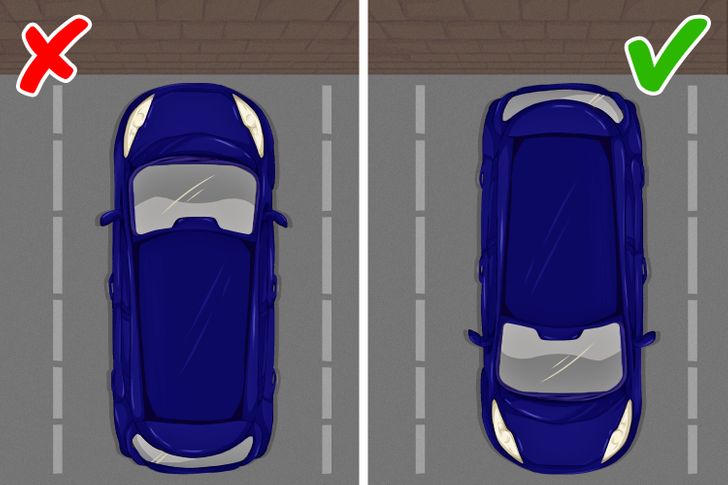
In a parking lot, back into the spot when you arrive. You’ll be calm and you’ll have enough time to get out of it later on. In contrast, there could be a situation when you need to leave in a hurry, possibly stressed and scared, and it’ll be harder to do if you’re parked head-in.
3. Know where to park.
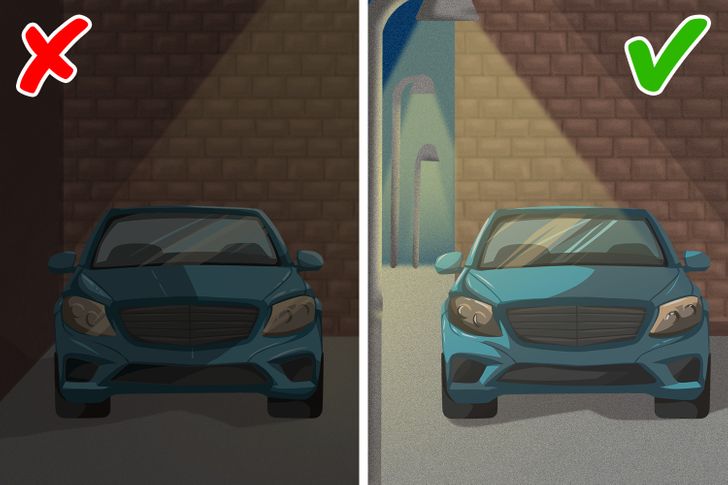
As difficult as it might be to find a free parking space, it could be worth it to spend a little extra time trying to find a safe spot. Choose a space that is well-lit. This will make it less likely for someone to choose you as their target because it’s easier to hide if it’s dark and you can’t see your car or what’s behind it very well.
4. Check your car.
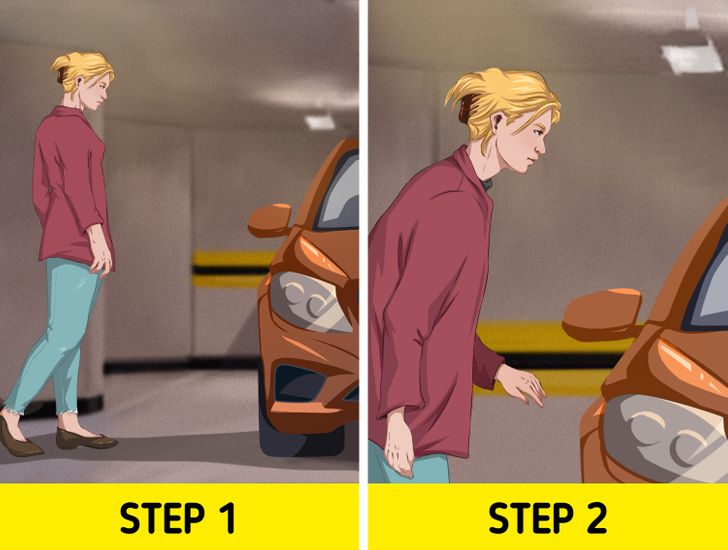
Before you enter your car, check everywhere around it from a distance to make sure that no one is hiding there. Also, don’t forget to bend down and check under your car. Once you’re done with the outside, make sure to check the inside too.
5. Carry a flashlight.
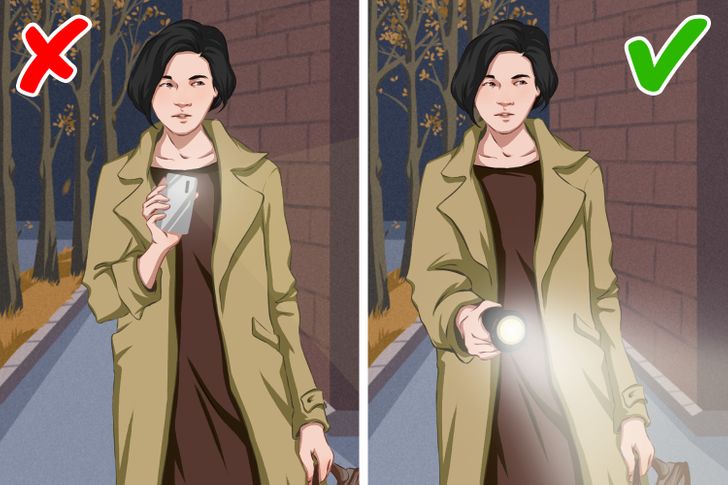
Keeping a powerful flashlight in your purse can come in handy in different situations. For example, if you’re walking somewhere at night, a flashlight is a better option than the light on your phone if you want to light the way. Firstly, a flashlight is less appealing to robbers than your phone. Secondly, if someone attacks you, you can use the flashlight to hit the attacker or to signal for help when you can’t yell or make a phone call.
Apart from that, a flashlight can be used to blind the attacker and give you time to run away. That’s why when you’re staying at a hotel, it’s always a good idea to keep a flashlight next to your bed.
6. Ask workers not to announce your room number.
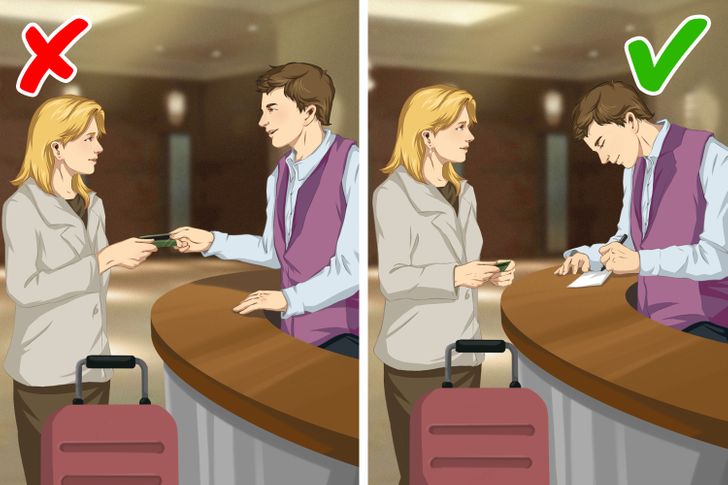
When you’re checking in at a hotel, ask the front desk employee to write down your room number on a piece of paper instead of saying it out loud because someone might overhear it. If for some reason they announce it anyway, there’s no shame in asking for another room and explaining that it’s important that no one hears it this time.
7. Ask for 2 sets of keys.
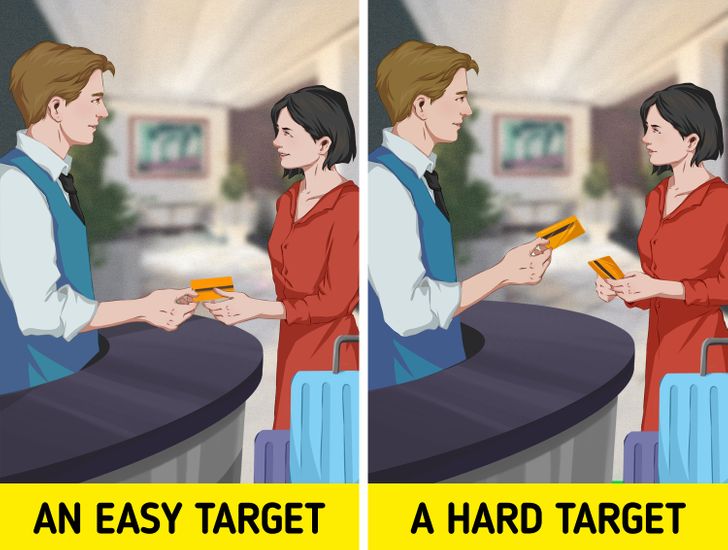
If you’re traveling alone, ask for 2 sets of keys at the reception desk when you check-in, if possible. People around you will think you’re traveling with someone and, therefore, aren’t an easy target. You could even mention that to the hotel employee and for others to hear.
8. Carry a door stop.
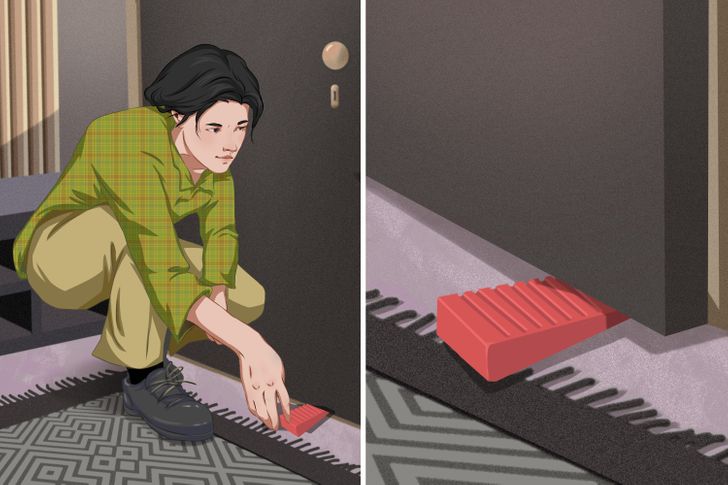
Unfortunately, hotel locks aren’t always reliable. They could be easy to pick, and in the event that a key gets lost or possibly stolen, the locks aren’t always replaced. So, for extra safety, use a door stopper when you’re taking a shower, sleeping at night, or at all times when you’re inside.
9. Know where to stand in an elevator.
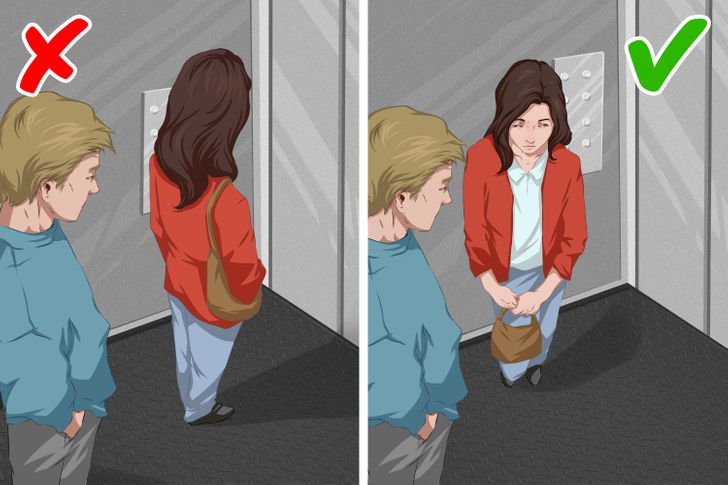
10. Choose the right seat on public transport.
